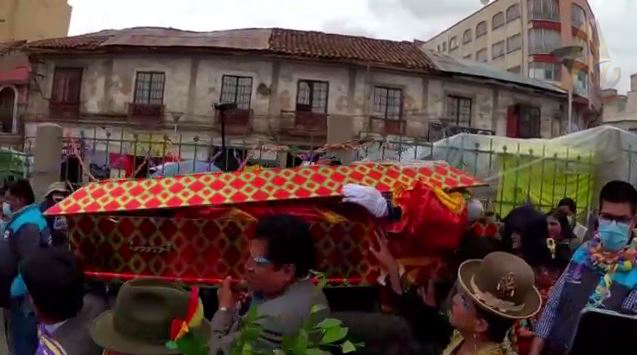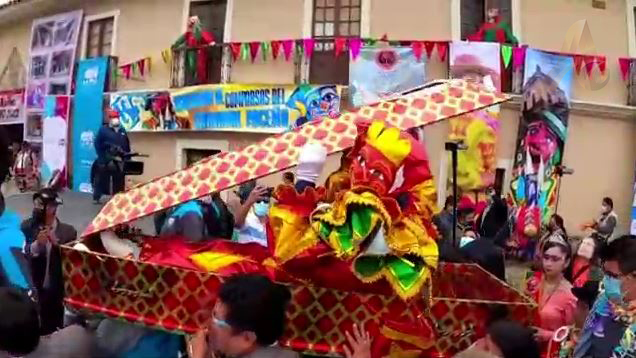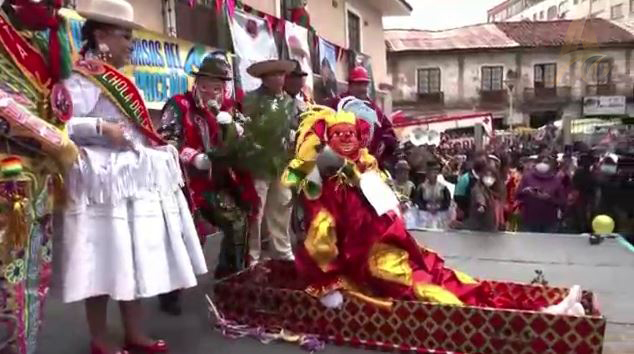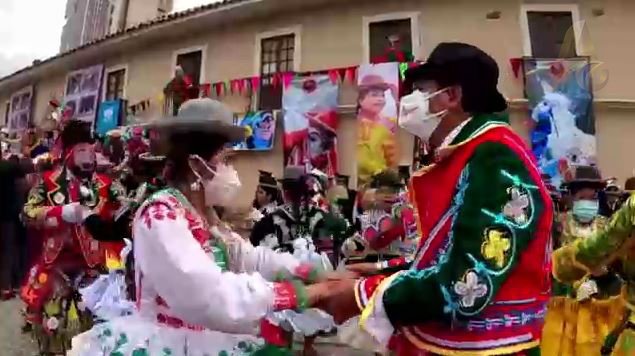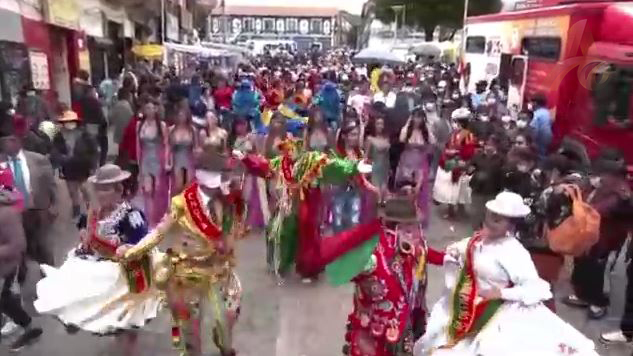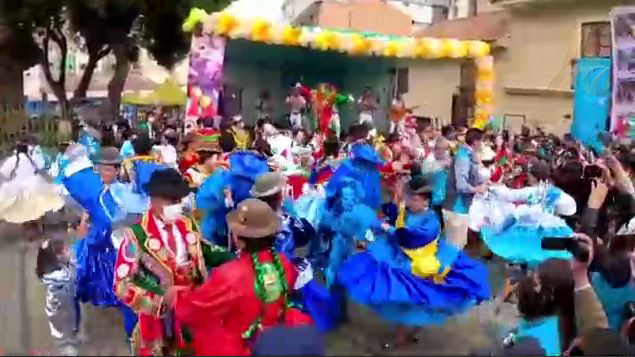INTERNATIONAL: There was a symbolic resurrection on the streets of La Paz, Bolivia on Sunday to mark the return of Carnival celebrations to the city after a pandemic pause. Pepino the Clown has returned to life from his bright red and gold coffin to officially mark the start of the city's Paceno Carnaval.
The lively carnaval festivities colour the city of La Paz.
In Bolivia carnaval is anticipated with excitement weeks before its arrival. Foam sprays and confetti are put on display as the celebratory buzz is felt all across the country. It should come as no surprise that Bolivia’s lively, large-scale carnaval celebrations assume a significant importance to the country’s culture and society.
The celebration in Bolivia is often associated with the world famous carnaval in Oruro, which draws up to 400,000 yearly visitors. Nevertheless, the carnaval in La Paz is just as fun and vibrant, being one of the biggest events of the year in the city. The four day programme entails folkloric dances, fancy-dress parades and other festivities.
The main event of the carnaval paceño is the Jisk’a Anata parade that takes place near Avenida Camacho, in the centre of the city. Thousands of dancers will tire themselves as they perform hours of folkloric dancing in colourful traditional clothing. A clown-like character called Pepino takes the centerstage during the celebration. Pepino is considered to be the king of the carnaval paceño, and will therefore have to marry the crowned queen of the carnival. After the main events of carnaval have taken place, cholitas mourn at Pepino’s funeral, wearing black polleras. As the carnaval-filled days come to an end, he is buried just to be dug up again in time for next year’s February festivities.
The last Carnaval in 2021 was cancelled to stop the spread of coronavirus in the South American country.
Music and dance have since returned to La Paz' streets, but Carnaval participants are being urged to keep their proof of vaccination on them and to practise social distancing and mask wearing to keep the virus at bay.
While much smaller than Rio's famed, flamboyant carnaval, the festivities in Bolivia are replete with colour, dance and music and attract thousands of tourists to witness the unique fusion of indigenous traditions, whimsy and colonial Catholicism.















